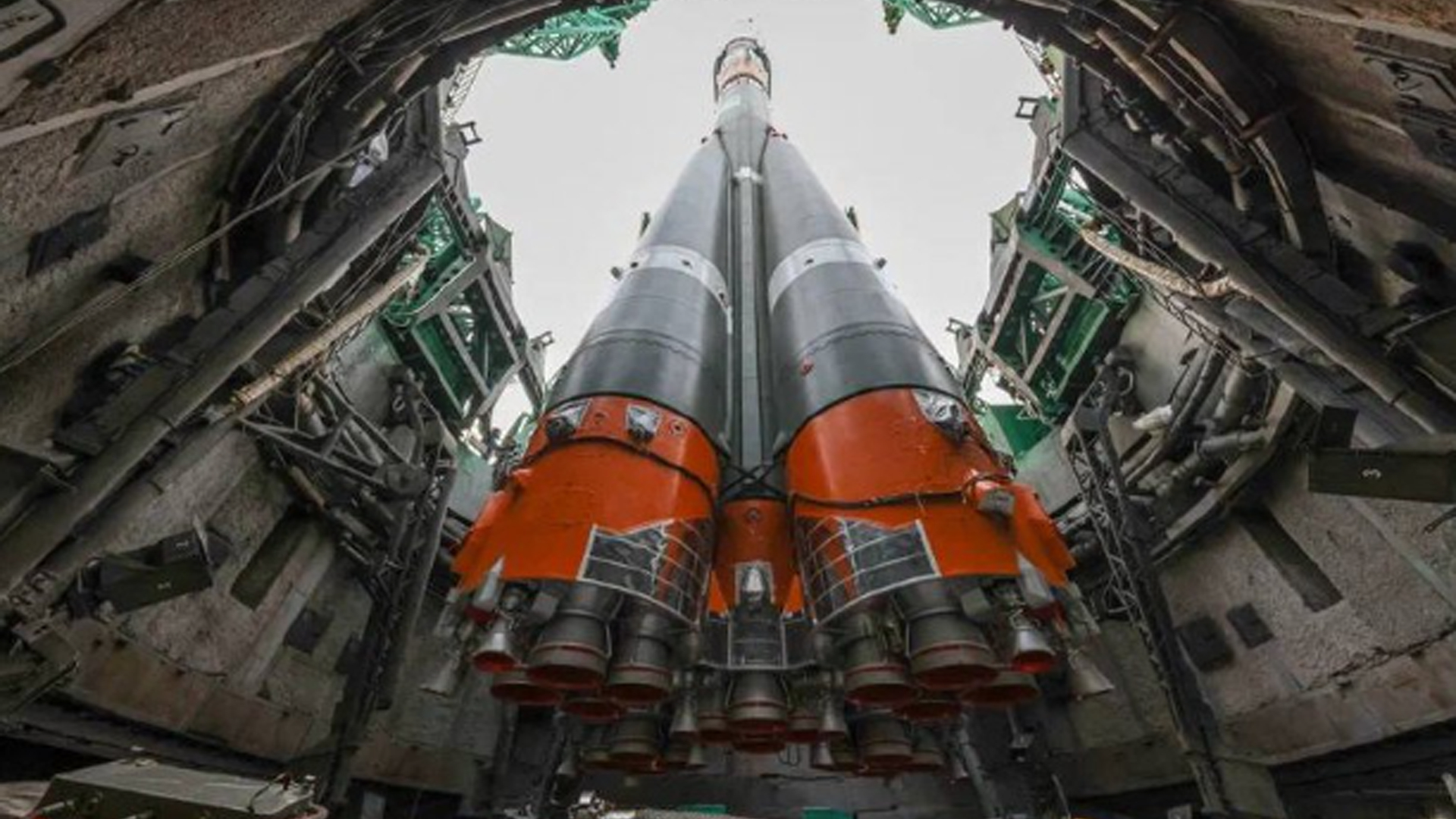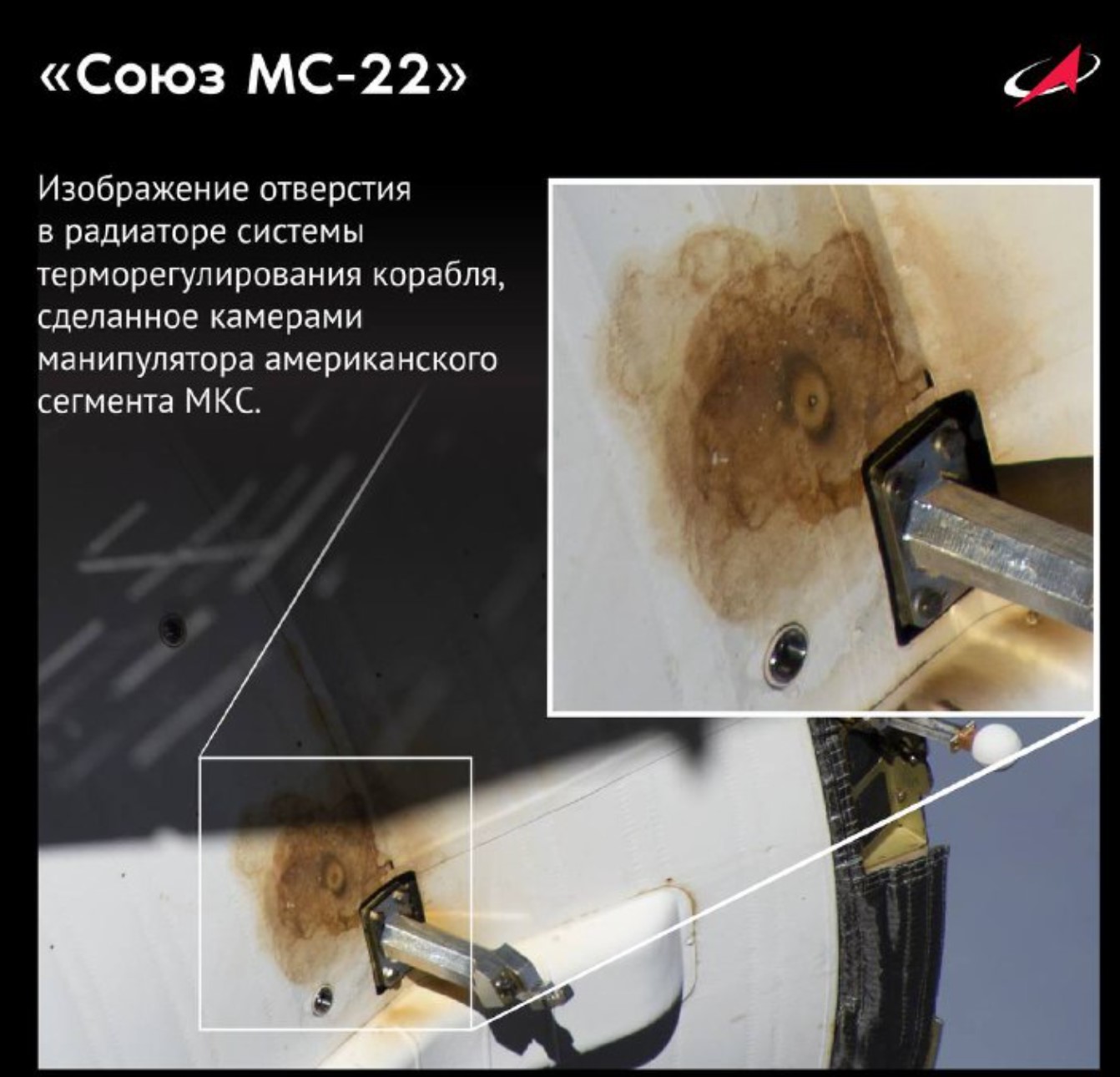Watch Russia launch replacement Soyuz to International Space Station tonight (Feb. 23)
Liftoff is at 7:24 p.m. EST (0024 GMT) tonight for Soyuz MS-23.
A replacement Soyuz is all set to launch toward the International Space Station tonight (Feb. 23).
The Soyuz, a vehicle called MS-23, will launch in an uncrewed state from the Russia-run Baikonur Cosmodrome in Kazakhstan Thursday at 7:24 p.m. EST (0024 GMT or 3:34 a.m. local time Friday, Feb. 24), if all goes according to plan.
NASA will start carrying coverage live on NASA Television, which we will run here at Space.com, at 7 p.m. EST on Thursday (0000 GMT on Feb. 24). Providing launch goes to plan, docking at the International Space Station (ISS) is expected Saturday (Feb. 25) at 8:01 p.m. EST (0101 GMT on Feb. 26).
Russia recently accelerated the launch of the Soyuz MS-23 spacecraft to the ISS to Thursday from a nebulous date in March, following a series of shifts to the schedule. MS-23 was supposed to be a normal crew rotation for the orbiting complex, but a coolant leak on the MS-22 spacecraft docked with the ISS that occurred on Dec. 14, 2022, and a subsequent Progress-82 freighter coolant leak at the complex on Feb. 11 created a cascade of changes.
Related: Russia to launch new Soyuz capsule to replace leaky spacecraft on space station

At first, Soyuz MS-23 was supposed to launch this spring with three crewmembers on board. That schedule was scuttled following the MS-22 leak, which left cosmonauts Sergey Prokopyev and Dmitry Petelin and NASA's Frank Rubio without a ride back to Earth unless there was a true emergency. Russia's space agency Roscosmos determined that the damaged Soyuz could safely bear just two people back home (Petelin and Prokopyev); NASA's Frank Rubio, in case of ISS evacuation, would crowd in aboard the four-person SpaceX Crew-5 spacecraft.
At first, Roscosmos was working to launch MS-23 uncrewed on Feb. 19, to leave three seats available for Petelin, Prokopyev and Rubio to return home. But then the coolant leak occurred on the Progress, and the agency announced in mid-February that MS-23 would launch in March to give enough time for investigation. It appears that review wrapped up earlier than planned, however, as Roscosmos announced on Monday (Feb. 21) that it would accelerate the Soyuz launch to Feb. 23, instead of March.
Get the Space.com Newsletter
Breaking space news, the latest updates on rocket launches, skywatching events and more!
Related: Russia to launch replacement Soyuz to space station on Thursday (Feb. 23)

Roscosmos said the two coolant leaks on Soyuz and Progress were likely due to unrelated micrometeoroid strikes and not to internal failures of the spacecraft. Fresh information came in after Progress undocked without incident on Friday (Feb. 17), letting crewmembers on board the ISS take new footage of the damaged craft for Roscosmos to review.
There is no immediate threat to the ISS crew due to the two leaks, but the space station partners always work to have healthy spacecraft on hand in case there is a need for rapid evacuation.
The leak drama has doubled the mission duration for Petelin, Prokopyev and Rubio, who came up to the ISS on MS-22 last September. The trio will now stay aboard the orbiting lab until September 2023, to allow for yet another Soyuz to launch with a fresh crew on board later in the year.
Elizabeth Howell is the co-author of "Why Am I Taller?" (ECW Press, 2022; with Canadian astronaut Dave Williams), a book about space medicine. Follow her on Twitter @howellspace. Follow us on Twitter @Spacedotcom or Facebook.
Join our Space Forums to keep talking space on the latest missions, night sky and more! And if you have a news tip, correction or comment, let us know at: community@space.com.

Elizabeth Howell (she/her), Ph.D., was a staff writer in the spaceflight channel between 2022 and 2024 specializing in Canadian space news. She was contributing writer for Space.com for 10 years from 2012 to 2024. Elizabeth's reporting includes multiple exclusives with the White House, leading world coverage about a lost-and-found space tomato on the International Space Station, witnessing five human spaceflight launches on two continents, flying parabolic, working inside a spacesuit, and participating in a simulated Mars mission. Her latest book, "Why Am I Taller?" (ECW Press, 2022) is co-written with astronaut Dave Williams.









